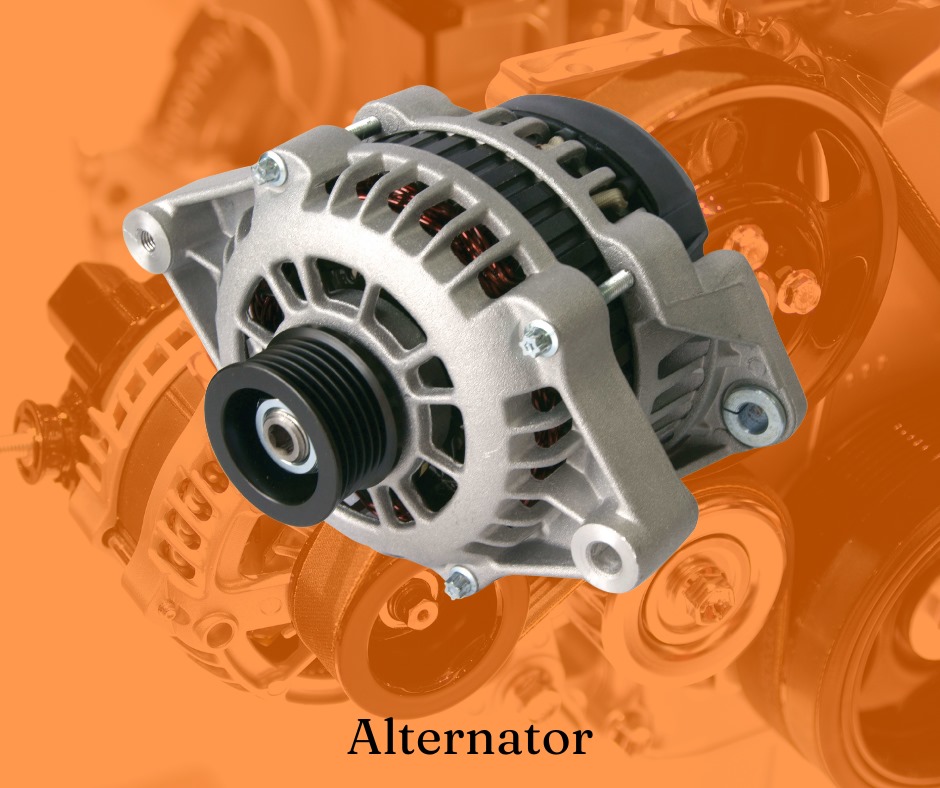10 Signs of a Worn Alternator You Shouldn't Ignore

Is your car acting up? It could be a sign that your alternator is on its last leg. Learn the top signs that indicate your alternator needs attention before it's too late.
Car’s Alternator: Its Role and Importance
The alternator is a crucial component of your vehicle's electrical system. It works to charge the battery while your car is running and powers the electrical systems when the engine is on. A healthy alternator ensures that your car's battery is charged and all electronic components are functioning properly.
When an alternator begins to fail, it can lead to a domino effect of electrical problems that can ultimately leave you stranded. Therefore, understanding the signs of a worn alternator is essential for maintaining your car's reliability.
Dim or Flickering Lights: A Classic Symptom of Alternator Trouble
One of the most noticeable signs of a failing alternator is dimming or flickering lights. This happens because the alternator is no longer capable of maintaining a consistent power supply to the vehicle's lights. If you notice that the headlights or dashboard lights dim when the engine is idling but brighten when you rev the engine, it's a telltale sign that your alternator may be wearing out.
Flickering lights are often accompanied by other electrical issues, such as malfunctioning accessories or erratic gauges, indicating that the alternator might not be able to handle the power demands.
Battery Problems and the Alternator Connection
While a dead battery may be a sign of various issues, it could also point to alternator problems. The alternator is responsible for recharging the battery while the car is running. If it fails, the battery will not receive enough charge, leading to a weak or dead battery, even if the battery itself is new or in good condition.
If you find yourself having to jump-start your car frequently or your vehicle struggles to start, it's worth having your alternator checked as it may not be providing the necessary charge to the battery.
Strange Noises: What They Mean for Your Alternator
A failing alternator can produce a variety of strange noises due to worn bearings or a failing pulley. You might hear a grinding or whining noise coming from the front of your vehicle, which could be a sign that the alternator's internal bearings are failing.
Alternatively, a squealing noise may indicate that the alternator belt is loose or worn out. These noises can serve as an early warning system for alternator issues before more serious symptoms appear.
How to Check for Alternator Problems Before It's Too Late
Regular vehicle maintenance and inspections are key to catching alternator problems early. You can perform a simple visual check for signs of wear and tear on the alternator belt and look for any loose connections. Additionally, you can use a multimeter to test the alternator's output voltage to ensure it's within the normal range.
Another method is to start the car and disconnect the positive battery cable. If the car continues to run, the alternator is likely functioning properly. However, this is an older method and not recommended for modern vehicles with sophisticated electronic systems. It's always best to consult with a professional mechanic who can perform a comprehensive diagnosis.
Drop us a message from our facebook page or Chat us using the widget on the right to order for a new alternator.

 Loading..
Loading..